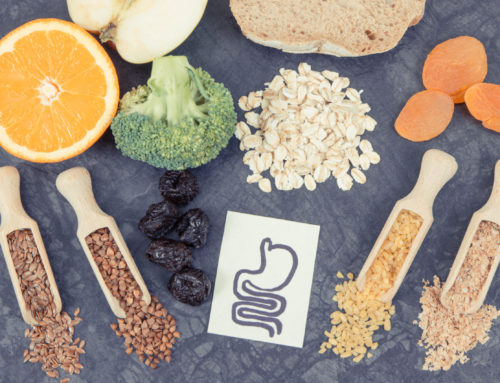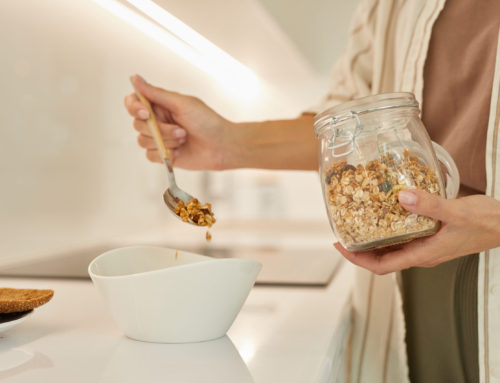We know our body’s inner defences.
…But which part keeps things out exactly?
In Classical Chinese Medicine, the immune system is thought to consist of two major parts.
There’s defenses within the body as we usually think, but there’s also an external component as well.
The external immune system is the body’s inherent ability to ward off outside invaders from entering the body – sort of like a castle’s walls, or the moat which makes it much more difficult for anything to get in close.
The external immune system consists of a surface-level energy called “Wei Qi“.
It’s the first defence system of your body.
It is the protective energy coursing through the outer layers of our body like a shield to protect us.
Wei Qi is nourished by the air that we breathe and the foods that we eat. Air quality and diet can directly affect this protective energy.
The circulation and activation of Wei Qi is propelled by the energy of the Spleen and Lungs.
These organs are vital to the strength of Wei Qi.
The Spleen is responsible for regulating water and food intake, nourishing Qi and creating blood. All of which are directly related to the strength of ones Wei Qi.
The Lungs receive the protective energy and are tasked with dispersing it throughout the rest of the body.
Poor or depleted Lung energy can result in poor defenses against unwanted intruders and environmental factors such as wind, cold, heat, dampness, and dryness.
Wind is considered the major cause of illness in classical patterns of disharmony. It is the primary transporter for most external invasions.
It combines readily with other environmental risk factors, giving rise to syndromes known as wind-cold, wind-heat, and wind-dampness. Each of which has unique, and distinguishable symptoms.
When Wei Qi is weak, the wind can invade.
Since Wei Qi is controlled by the respiratory system, the sinuses, throat, and mucous membranes are commonly affected by external invasion.
The symptoms are usually acute and have a shorter duration than internal conditions.
However, if the body’s external defenses are not carefully nurtured then the issues may drive deeper; eventually leading to more severe and unpleasant symptoms.
Luckily, there are a number of solutions found directly in nature that are known to positively influence Wei Qi.
You may have heard of a few of them including Reishi, Astragalus, Schisandra, and Gynostemma.
Each of them is carefully crafted into our own defense fortifying formula – Great Guardian. Here’s something about them all working together / tonifying Wei Qi.
Astragalus:
- Tonifies the Spleen and augments the Qi
- Raises the Yang Qi of the Spleen and Stomach
- Augments the protective (Wei) Qi
Astragalus root provides quick energy, supports the immune system, helps digestive function, and is considered one of the most important longevity tonics; it is a Qi tonic as it directly supports the Lung and Spleen organs in the body.
By supporting those organs, you derive and maximize energy from the foods you eat and the air you breathe.
Astragalus also houses something called “upright qi” which is the energy in the body that supports upright posture and the correct position of the organs.
This tonic is ideal for anyone experiencing low energy, low immune function, or weak digestion.
Schisandra:
- Contains the leakage of Lung Qi
- Tonifies the Kidneys
- Generates fluids
- Quiets the spirit
The significance of this has to do with the therapeutic range of this herb. Its sourness and saltiness enter the Liver and also enriches the Yin of the Kidneys. The bitter and acrid flavors enter the Heart and tonifies the Lungs.
Finally, the sweet flavor enters the Spleen and augments its energy. So, this incredible herb is able to tonify the Yin of all five Yin organs of the body.
The more pronounced flavor of Schisandra is sour, and as such, its ability to stabilize the primal Qi of the Kidneys is more pronounced.
It also is a powerful Liver tonic and helps to keep the Liver’s detoxifying function running smoothly. Schisandra also has a long history of use as a beauty tonic.
The Lungs are in charge of dispersing fluids to nourish the skin, and in its capacity of tonifying the Yin of the Lungs, Schisandra also enhances the Lungs’ function of nourishing the skin to keep it hydrated.
Gynostemma:
- Clears heat
- Moistens Lungs
- Double direction Adaptogenic activity
Gynostemma is renowned the world over for its antioxidant, longevity, and adaptogenic properties.
It contains many amino acids, vitamins and minerals that have a positive influence on the body, including calcium, iron, magnesium, manganese, phosphorus, potassium and zinc.
Gynostemma also contains more than 80 compounds known as gypenosides, which are similar to those found in Astragalus and Ginseng.
Anyone that is over-worked, over-stressed, fatigued, and in search of a natural way to find balance, energy, and immune support, add Gynostemma to your routine.
Reishi:
- Supports and balances immune response
- Calms the Spirit
- Augments Qi
- Nourishes blood
What isn’t Reishi good for again? I lost count some time ago…
Also known as the “mushroom of immortality,” Reishi is perhaps the greatest tonic known in the Chinese pharmacopeia!
The fruiting bodies of this mushroom contain polysaccharides, specifically a type called beta-glucans, which have been studied to support immune health and overall wellness, as well as normal, healthy cell growth and turnover.
Everyone can benefit from taking Reishi, and it’s one of my favourite herbs.
It’s my belief that the goal isn’t squashing symptoms after they’ve become a problem – but proactively avoiding such things for as long as possible. So I hope this information can help you to bolster your immunity and stay healthy at any time of year.
Be well,
Dr. George








